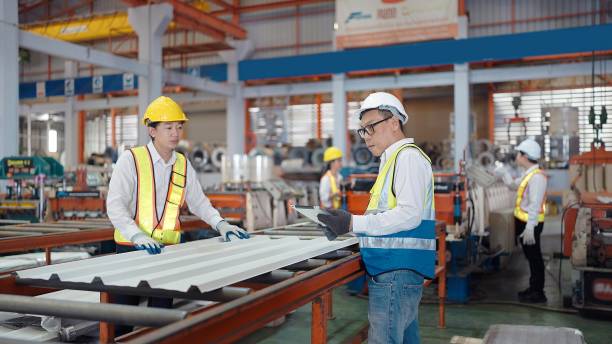Packing Jobs: Essential Roles and Career Opportunities
Packing jobs form the backbone of efficient warehouse and production environments. These roles cover a variety of tasks, from packing products securely and accurately, to labeling and preparing shipments that meet quality standards. Understanding the core responsibilities and skills required can open the door to a rewarding career in industrial packing and logistics industries. Whether you’re seeking temporary assignments or long-term employment, packing roles offer significant opportunities for growth and development.

The demand for skilled packing professionals continues to grow as global commerce expands and consumer expectations for product quality rise. These roles require attention to detail, physical stamina, and adherence to safety protocols. Understanding the various responsibilities and career pathways within packing operations can help individuals make informed decisions about pursuing opportunities in this essential field.
What Are Packing Operative Job Responsibilities?
Packing operatives perform a range of duties that ensure products reach their destinations intact and properly documented. Primary responsibilities include selecting appropriate packaging materials based on product specifications, securely wrapping or boxing items to prevent damage during transit, and verifying that contents match order documentation. Operatives must maintain clean and organized workstations while adhering to production schedules and quotas.
Additional duties often involve recording batch numbers and expiration dates for inventory tracking, identifying and reporting damaged goods before packaging, and collaborating with warehouse teams to coordinate shipment schedules. Many positions require standing for extended periods and lifting packages of varying weights, making physical fitness an important consideration. Operatives also contribute to continuous improvement initiatives by suggesting process enhancements that increase efficiency or reduce waste.
How Do Quality Inspection and Packaging Standards Work?
Quality control represents a fundamental aspect of packing operations, with established standards protecting both consumer safety and brand reputation. Packing professionals conduct visual inspections to identify defects such as cracks, discoloration, or incorrect sizing before items enter packaging. They verify that products meet weight specifications using calibrated scales and ensure proper sealing to maintain freshness or prevent contamination.
Industry-specific regulations govern packaging standards across sectors. Food and pharmaceutical packing requires strict hygiene protocols and temperature controls, while electronics packaging demands anti-static materials and shock-absorbing cushioning. Operatives must document inspection results, segregate non-conforming items, and follow established procedures for handling rejected products. Regular training updates ensure teams remain current with evolving safety regulations and quality benchmarks that vary by product category and destination market.
What Industrial Packing Equipment Operation Skills Are Needed?
Modern packing facilities utilize various automated and semi-automated equipment that requires specific operational knowledge. Common machinery includes shrink-wrap machines that apply heat-sealed plastic coverings, vacuum sealers for preserving perishable goods, and automated box erectors that assemble containers at high speeds. Operatives must learn proper setup procedures, routine maintenance tasks, and troubleshooting techniques to minimize production interruptions.
Advanced facilities may employ conveyor systems with integrated weighing stations, robotic palletizers that stack finished packages, and label applicators with barcode scanning capabilities. Understanding equipment safety features such as emergency stops, protective guards, and lockout-tagout procedures prevents workplace injuries. Many employers provide on-the-job training for equipment operation, though prior experience with industrial machinery can enhance employment prospects. Mechanical aptitude and willingness to learn new technologies benefit those seeking advancement into specialized packing roles.
How Does Labeling and Shipment Preparation Function?
Accurate labeling ensures packages reach correct destinations and comply with shipping carrier requirements. Packing operatives apply labels containing recipient addresses, tracking barcodes, handling instructions, and hazard warnings when applicable. They verify that label information matches order documentation and shipping manifests, preventing costly delivery errors and customer complaints.
Shipment preparation involves organizing packages by carrier, destination zone, or delivery priority to streamline loading operations. Operatives create packing lists that itemize box contents, generate shipping documentation such as bills of lading, and coordinate with logistics teams regarding pickup schedules. International shipments require additional paperwork including customs declarations and country-specific compliance labels. Attention to regulatory requirements for restricted items such as batteries, aerosols, or temperature-sensitive materials ensures shipments clear inspection checkpoints without delays.
What Does Packing Material Handling and Safety Entail?
Proper material handling protects both workers and products throughout packing operations. Operatives must use correct lifting techniques when moving heavy items, utilize mechanical aids such as hand trucks or pallet jacks for oversized loads, and maintain clear pathways to prevent tripping hazards. Storage of packing materials requires organization systems that allow easy access while preventing damage from moisture, pests, or excessive heat.
Safety protocols address various workplace risks including repetitive motion injuries from continuous packing tasks, cuts from sharp tools or packaging edges, and exposure to adhesives or cleaning chemicals. Personal protective equipment such as cut-resistant gloves, safety shoes, and back support belts may be required depending on facility operations. Regular safety training covers proper tool usage, emergency procedures, and hazard recognition. Maintaining clean work areas by promptly disposing of packaging waste and wiping up spills reduces accident risks and promotes efficient operations.
Career Development in Packaging Operations
Entry-level packing positions often serve as gateways to broader logistics and warehouse management careers. Demonstrated reliability, quality performance, and equipment proficiency can lead to supervisory roles overseeing packing teams. Some operatives specialize in complex packaging for fragile or high-value items, while others transition into quality assurance positions conducting systematic inspections and audits.
Continuing education opportunities include certifications in forklift operation, hazardous materials handling, or lean manufacturing principles that emphasize waste reduction. Larger organizations may offer internal advancement programs that develop employees for inventory management, shipping coordination, or supply chain analysis roles. The transferable skills gained in packing operations—attention to detail, time management, and teamwork—provide foundations for diverse career pathways within manufacturing, distribution, and retail sectors.
Packaging positions remain vital to commerce across all industries, offering stable employment opportunities for individuals seeking hands-on work in dynamic environments. Understanding the multifaceted responsibilities, safety requirements, and growth potential within these roles helps prospective workers align their skills and interests with available positions in this essential field.




